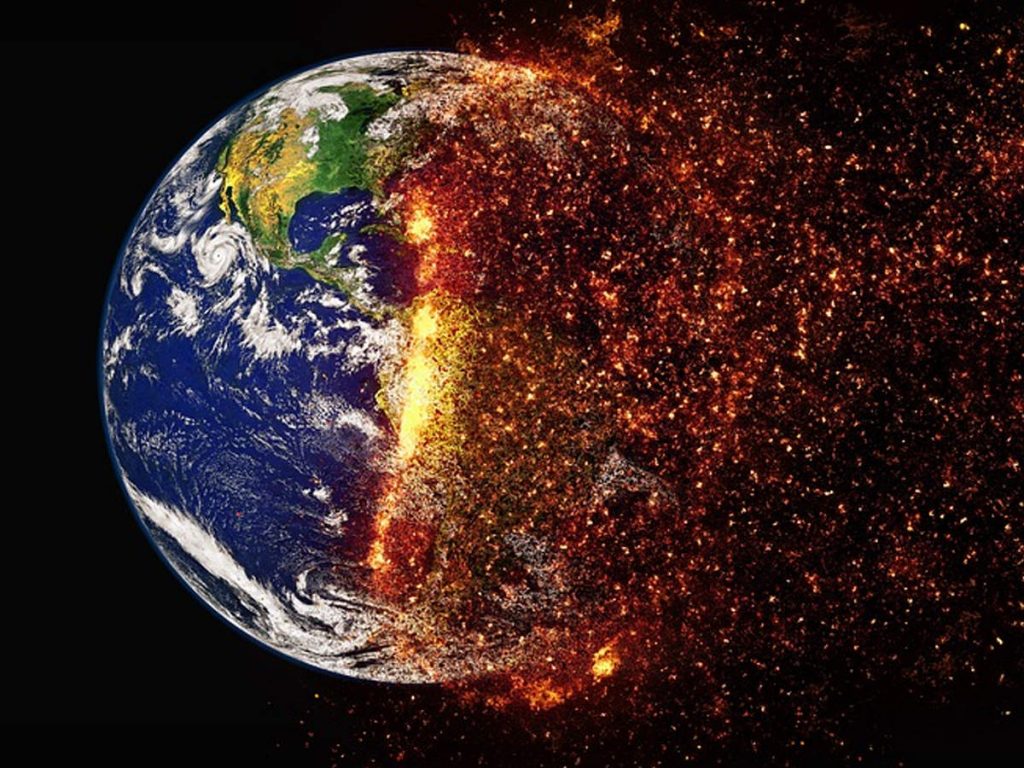
Corporations have been lying to us for 40 years about the climate crisis. Now it’s their time to step up before it’s too late.
By Justine Ross
In recent years many people have vowed to live a more eco-friendly, sustainable life. These lifestyle choices range from reducing meat consumption and driving less to buying second-hand clothes and locally produced foods. Although this is in no way a bad move, and one that more people should adopt if they fancy a future for their grandchildren, it is often strategically advertised to take the onus away from corporations (who pose the biggest threat to humanity) to the everyday citizen. This shifting of blame can be identified as early as 1971, when the non-profit organisation, Keep America Beautiful, released an advert showing a ‘Native American’ shedding a tear as someone chucks a bag of rubbish out of a car, ending with the slogan “People Start Pollution. People Can Stop It.” The irony emerges when you look at where the funding for the organisation comes from with corporate giants, such as Coca-Cola Company and PepsiCo (some of the worst culprits for single-use plastics), being large donors. Moreover, British Petroleum (BP), one of the globe’s seven oil and gas “supermajors”, coined the now well-known term ‘carbon footprint’ in the early 2000s. The primary aim of BP was to steer conservation towards adopting a sustainable way of living, ensuring that scrutiny and accountability to the fossil fuel industry was kept away from public demand. It is this selfish nature of capitalism that has got us into the climate mess, thus it must be businesses, that have capitalised off of unsustainable fossil fuels (despite knowing the consequences), that get us out.
Many people would argue it unfair to hold fossil fuel companies completely accountable as ‘they didn’t know the effects of fossil fuel extraction’. However, belief in arguments like this show another form of brainwashing carried out by corporations. ExxonMobil is the world’s largest oil and gas company, ranking 5th for overall CO2 emissions. The company knew about the possible catastrophic effects of stripping the Earth of its natural resources 40 years ago! Using the world’s leading scientists, they launched a ground-breaking investigation taking CO2 samples, creating projected climate models and even spending over $1 million on a tanker project aimed at understanding how much CO2 is adsorbed by the ocean. James Black, one of the leading scientists on the project, showed how burning fossil fuels was directly affecting the world’s temperature, and without reform will end in disaster.
This poses the question of why. Why would a company have carried on ‘business as usual’ whilst knowingly destroying the only habitable planet we have? The answer is their selfish drive for money in their pocket at the expense of humanity.
After ExxonMobil gained a thorough and deep understanding of the severity of the climate emergency, they launched a decade long campaign aiming to cover up their findings and raise scepticism in society around climate change. Many people see this as the catalyst for climate change denial today. This is one of the main reasons, along with having the materials, capital and influence to make a meaningful recovery, that corporations must be held accountable for their history of actions and thus must be the frontrunners for societal change, as if humanity depended on it.
Tadzio Murller, a German climate activist, argues for a shift away from Capitalist ideals of constant consumerism and growth if we want a future on Earth. In July 2019 he states that “the only thing in the last 49 years that has measurably reduced global greenhouse gas emissions is reductions in economic growth when the Eastern bloc collapsed in the early 90s”.
The Treadmill of Production model provides us with a good understanding to why corporations must be the drivers in confronting climate change. It was first proposed by Alan Schnaiberg in his book The Environment: From Surplus to Scarcity (1980). In it he argues that environmental degradation was due to the nature of capitalism calling for a relentless scaling up of economic production which causes resource exploitation, consumption and pollution. It shifts the focus away from consumption to production. This is because many decisions that have huge impacts on the environment eg) volumes of production, are made without the consultation of consumers. “They have no influence over the allocation of capital to productive technologies” (Gould, Pellow & Schnaiberg, 2008: 20).
How we choose to move forward in the next few years will determine humanity and all of life on planet Earth. Adopting an eco-friendly lifestyle, with focus on reducing consumerism in all senses, is very much needed as we move into a critical 11 years for our home. However, I am calling for corporations, especially multi-billion fossil fuel companies, to step up and take responsibility as 20 fossil fuel companies are responsible for “35% of all energy-related carbon dioxide and methane [gasses] worldwide”. Through continued direct action, pressure and lobbying, corporations must change their ways to ensure a future for all living species.

0 Comments